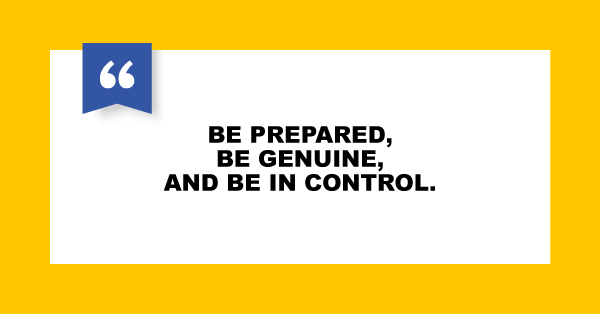
Fortunately or unfortunately, jurors expect real-life lawyers to be as exciting as Harvey Specter closing a deal or Tom Cruise getting Jack Nicholson to confess to ordering the Code Red. It may be impossible to trick your opponent into giving you that one-liner that will win your case, but TV lawyers permit you to command the room and demand the answers you are entitled to. A well-prepared lawyer can utilize key documents and effectively tailored questions to tell the jurors everything they need to know without ever focusing on the witness. A good cross-examination is about you, after all, and the wit- ness is nothing more than a vessel to tell the jury your client’s story. Our goal on cross is to attack and distract, and you need to know when to quit while you are ahead.
Be prepared, be genuine, and be in control.
BE PREPARED
All the dreams of humiliating Jack Nicholson go out the window if you are unprepared. The scariest bully is not the biggest guy in the room—it is the one who can embarrass you in the school- yard by making you look foolish. While you may never know more than a CTO or expert, preparation boosts your credibility with the jury and gives you the confidence to pivot when needed. And, as Jack Benny said about getting into Carnegie Hall…practice, practice, practice! If you have not practiced your cross-examination, you are only asking for trouble. Take the opportunity to test your case theories with your friends and get valuable feedback on how you and your questions are perceived.
A tenet of cross-examination is that you should only ask questions you know the answers to. When you do, you can control a witness and force them to testify to facts beneficial to your client’s case. On cross, you have the jury’s attention, and it is your show. Use the courtroom as your canvas to paint the room with your best evidence and show off your preparation. Like Occam’s razor, if you cut the legalese and lay down a smooth storyline, a jury will be much more receptive to your rehearsed narrative than an expert fumbling over technicalities.
BE GENUINE
Always be yourself. Don’t fake a style you don’t have. A jury can smell phony and deceit from a mile away. Jurors may identify with a witness, but smart, thoughtful, and concise questions keep the focus on you and your narrative without giving the witness an opportunity to connect with the jury. This also effectively undoes any rapport the witness developed during direct examination. The jury is deciding whether they like you based on how you treat the witness, so it is imperative to be aware of the optics in the room. Consider the dynamics between the witness on the stand and the lawyer at the table. Attorneys come in all shapes, sizes, and styles. Jurors do not want to see the bulldog attorney bark aggressive questions at a likable lamb who is naturally sympathetic. Likewise, a quick-witted, savvy CEO will make a first-year associate seem inexperienced and outmatched. The best defenses know how to match up against the best offenses. Cross-examination is no different. Most times, we get a preview of the witness’s demeanor in deposition, so use your team to your advantage and choose your best fighter appropriately.
BE IN CONTROL
No one likes bickering. And no one wants to see you arguing with the witness. To establish control, spoon-feed the witness the conclusions you want the jury to hear by making statements that provide easy “yes” or “no” answers emphasizing your key facts (known as “constructive cross”). “I want to talk first about how Mr. X left the building with a box of confidential documents, ok?” followed by “Mr. X is an executive?” This distraction allows you to control the tone of what the jury hears. If you are getting pushback and unfavorable testimony, sidestep the answer and spin the request back to you: “Sir, I think you misunderstood, and we will get there, but I would like for you to answer my question” or “Sir, what was the question you were just asked?” Look to the judge, jury, and opposing counsel for cues. If opposing counsel is squirming, the witness is being evasive, and the jury is nodding along, it is your signal to attack and confront the witness on any contradictions (known as “destructive cross”). Create a noticeable shift in tone, and keep the questions concise and any impeachment succinct. Then, end with your best indisputable point as a “summary” and sit down.
While we will rarely get the confession from the stand, we must view cross-examination as the platform to showcase our strengths to the jury—even if sometimes our client is the little guy.
View PDF




